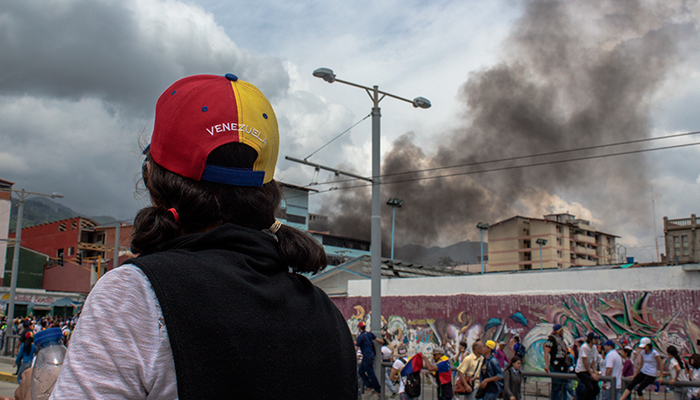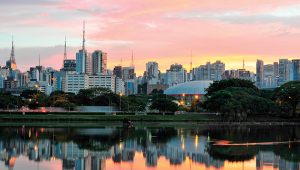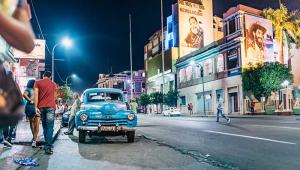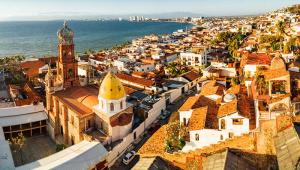In the annals of hyperinflation, few countries have ever suffered the humiliation of price rises hitting 1 million percent, but earlier this year a senior IMF official claimed this is the catastrophic prospect facing Venezuela.
Its economy has been in freefall since 2016 and, for good measure, Alejandro Werner, head of the IMF’s Western Hemisphere department, compared its plight to that of Germany in 1923.
As a result, millions of Venezuelans have fled, adding “humanitarian disaster” to the hyperbole casually published about this troubled country.
There is no doubt Venezuela’s situation is bad, although a rescue plan unveiled by President Nicolás Maduro in August may now keep the stats below Werner’s symbolic threshold.
But the widespread scepticism with which Maduro’s plan has been met highlights a key question that any truly objective effort to understand this crisis must consider: to what extent can it be blamed on his policy failings in the first place?
It is an important question because, viewed objectively, it is baffling how things have spiralled out of control in a once wealthy country enriched with the world’s largest oil reserves, second largest gas reserves, and largest freshwater, gold and coltan reserves.
Indeed, Venezuela’s predicament obliges us to consider all the theories seeking to explain it – no matter how preposterous.
While Maduro’s enemies say it is the classic outcome of “economic populism” under a reckless socialist maverick, his allies say it is the toll of an “economic war” being waged by international conspirators hell bent on ending a socialist experiment.
The crisis
It is without doubt that Venezuelans are enduring a textbook meltdown, with growth set to contract 18% this year. Hyperinflation has hammered society, doctors report malnutrition, hospitals have run out of medicines, blackouts are frequent, taps are running dry, and crime is soaring. Poor conditions have provoked violent unrest, a brutal over-reaction by security forces, plots against Maduro, and assassination attempts.
The most visible response of Venezuelans to their distress has been mass migration: the UN estimates that since 2015 some 2.3 million have fled, mostly to Colombia.
Venezuela has all but lost access to foreign debt and drained its reserves, foreign investment has stalled, and the fiscal deficit is put at 20% of GDP.
In August, a desperate Maduro vowed to stop the rot through a “visionary” plan that devalued the ailing bolívar, hiked the minimum wage, raised taxes, and curbed subsidies. He promptly flew to China with a begging bowl.
The blame game
While many Venezuelans blame Maduro, the former bus driver has never been more than the hand-picked successor of the charismatic Hugo Chávez, who led the country’s “Bolivarian Revolution” from 1999–2013 and proclaimed “21st century socialism”.
Chávez has a good legacy, whereby he overthrew a corrupt oligarchy to transform the lives of the poor through a democratic metamorphosis, and a bad legacy, which puts today’s macroeconomic woes in context.
Price controls bankrupted local producers, currency controls created a black market in dollars, and Chávez’s greedy dependence on oil to fund his revolution and buy friends drove Venezuela’s most productive sector to its knees.
If Maduro can justifiably state that he inherited this mess, his clumsiness has made it worse.
Yet while a global media turns him into the fall guy, the message coming from the Palacio de Miraflores fails to get an airing.
Maduro’s regime insists it is the victim of “economic warfare” led by a coup-mongering opposition bankrolled by an “imperialist” US that is viscerally hostile to socialism.
A string of Venezuelan ministers, intellectuals and activists have put flesh on this argument since 2016, accusing Washington, ratings agencies, banks, and multilateral organisations of exerting a colossal squeeze on the economy.
They allege a conspiracy to attack Venezuela’s credit ratings and weaken its currency through speculation.
Economist Pasqualina Curcio Curcio says multinational corporations have orchestrated shortages, hyperinflation is “induced” through foreign manipulation of the exchange rate, and US allies have flooded markets with cheap oil to drown revenues.
Even some UN officials say Venezuela is the target of economic warfare.
Relations between Caracas and Washington have long been poor, and Chávez routinely accused the US of meddling. His death in 2013 is even attributed by some aides to the CIA.
US hostility persisted under Obama, but Trump has ratcheted up the pressure, forbidding US citizens from trading Venezuelan debt, escalating sanctions, and even considering choking its oil lifeline.
A campaign of character assassination targets Maduro, his family and allies, Trump has discussed invading the country, and senior US figures yearn for a coup. All the while, a corporate US media nurtures a hostile environment blaming socialism for all Venezuela’s ills.
Back to the future
It would be easy to dismiss talk of “economic warfare” as the mad bombast of unreconstructed “leftists” – were it not for the fact that there are historical precedents.
Just two weeks after the Marxist Salvador Allende won Chile’s election in 1970, the then US president Richard Nixon ordered the CIA to “make the economy scream”.
Declassified reports reveal “massive” US interference, while multinationals tried to stop Allende in his tracks or demanded a coup.
US interventions in Chile were based on a remarkably similar toolkit to that alleged by Maduro, shutting down lending to destabilise it financially.
Given this history, and the force of the hurricane encircling the Bolivarian Revolution, it is important to consider all the factors at play in Venezuela’s crisis.
Yet when he made his dire warning, Werner stuck to the script – attributing the country’s problems to “widespread micro-level distortions on top of large macroeconomic imbalances”.
Such comments are subtle doublespeak.
They either conceal coded antipathy towards an unloved socialist, or betray a technocratic disinterest in the bigger picture.
Either way, given suspicions that Venezuela’s agony is not entirely home grown, a failure to address this represents not only a sin of omission – but an effort to take sides.















